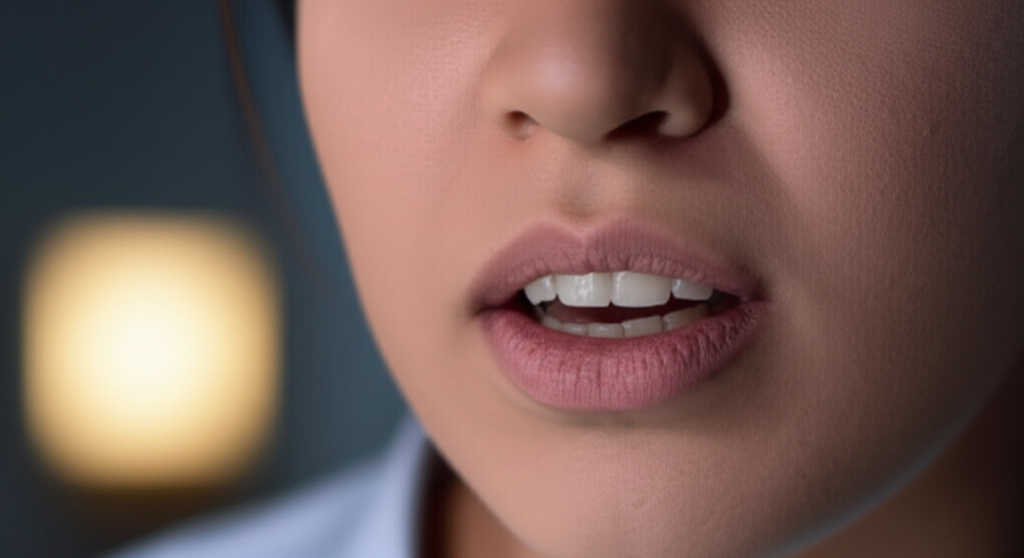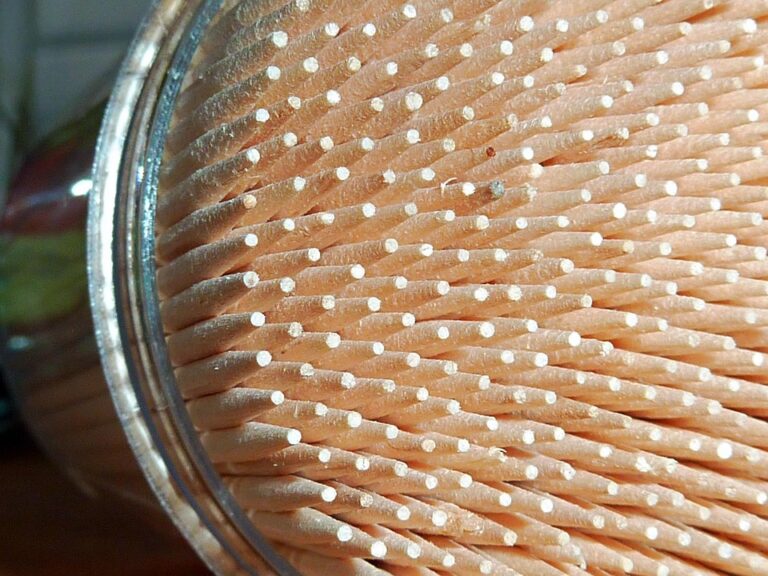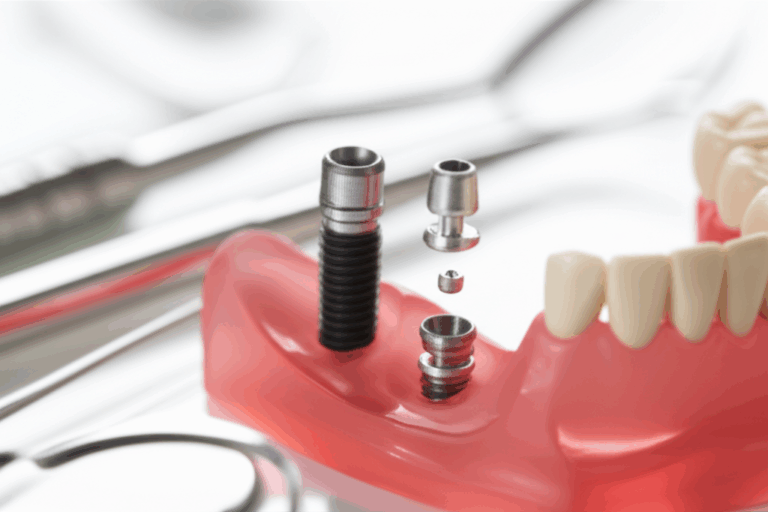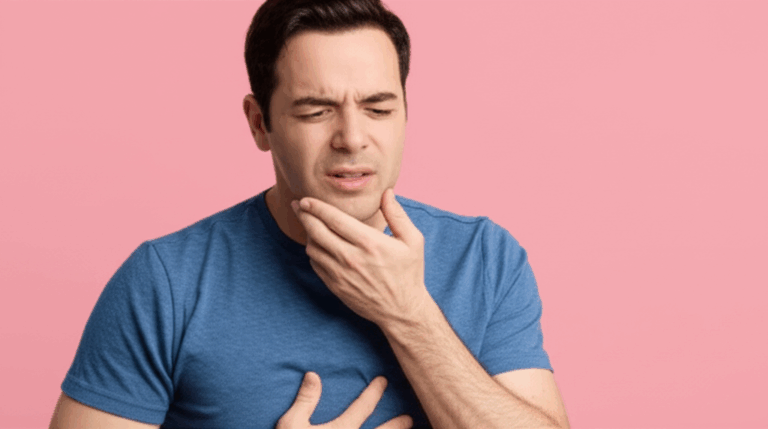
Can Sleep Apnea Cause Dental Problems? Understanding the Oral Health Connection
Sleep apnea does more than just mess with your breathing at night—it also affects your mouth. In this article, you’ll learn how sleep apnea and dental problems go together, why a lot of people don’t see the link, and what you can really do about it. This is worth reading because keeping your smile healthy is about more than just brushing and flossing—it might actually start with how you sleep.
Table of Contents
- What Is Sleep Apnea and Why Should You Care?
- How Does Sleep Apnea Hurt Your Teeth?
- Bruxism: Does Grinding Your Teeth Mean You Have Sleep Apnea?
- TMJ Pain: Is Your Jaw Aching From Sleep Trouble?
- Why Does Your Mouth Feel Like The Sahara Desert?
- Cavities and Gum Disease: Are They Linked to Bad Sleep?
- Acid Reflux, Enamel Erosion, and Teeth Woes
- Does Sleep Apnea Start Dental Trouble in Kids?
- How Do Sleep Apnea Treatments Affect Your Mouth?
- When Should You See Your Dentist?
- What Can You Do to Protect Your Teeth?
- How Can Dentists and Sleep Doctors Work Together?
- FAQs about Sleep Apnea and Dental Health
- Key Takeaways
What Is Sleep Apnea and Why Should You Care?
Every night, your body tries to fix itself. But with sleep apnea, things get messed up: your airway keeps closing, so you stop breathing for a bit. This happens because your tongue, tonsils, or even the way your jaw is shaped blocks your throat. You might snore, move around, or even wake up gasping for air. The two main types are Obstructive Sleep Apnea (OSA) and Central Sleep Apnea (CSA).
A lot of people think sleep apnea just makes you tired or makes you snore loudly. The big surprise? It can ruin your mouth without you knowing.
Here’s why you should care: staying healthy and happy is often about having strong teeth and gums. If sleep apnea hurts your mouth, you’ll soon feel pain and pay more at the dentist.
How Does Sleep Apnea Hurt Your Teeth?
Maybe you’re thinking: “Can my sleep problem really make my teeth worse?” Yes, it really can. Here’s how:
- Mouth Breathing: A lot of people with sleep apnea breathe through their mouth at night, which leads to a dry mouth (xerostomia).
- Teeth Grinding (Bruxism): Your brain, running out of air, tells your jaw muscles to move—grinding your teeth together.
- Acid Reflux: Trouble breathing can push stomach acid up, so it touches your teeth.
- Inflammation: Sleeping badly makes your immune system go into overdrive, so gums get red and swollen.
If this keeps happening, it can cause your enamel (the hard part of your teeth) to wear away, cavities, and even gum disease. And let’s be real—nobody wants that.
Bruxism: Does Grinding Your Teeth Mean You Have Sleep Apnea?
Bruxism is a fancy way of saying you clench or grind your teeth. Sometimes you hear squeaks, feel your jaw ache, or notice your teeth look flat or chipped. Did you know up to 75% of people with sleep apnea grind their teeth at night? That’s not just bad luck.
What’s happening? Every time your airway closes, your jaw tries to move and open it up again. Grinding is your body’s way to try to breathe. The result? Chipped, cracked, or sensitive teeth.
Table: Signs of Bruxism
| What To Look For | What It Means |
|---|---|
| Worn, flat teeth | Grinding at night |
| Sore jaw on waking | Overusing jaw muscles |
| Nighttime noises | Tooth grinding sounds |
| Headaches in morning | Clenching your jaw |
If you notice these signs, talk to your dentist soon—especially if you snore or feel tired every morning.
TMJ Pain: Is Your Jaw Aching From Sleep Trouble?
If you’ve ever opened your mouth wide and felt a click or some pain in your jaw, you know about the Temporomandibular Joint (TMJ). This is where your jaw connects to your head, and it can really hurt if you grind or clench your teeth. People with sleep apnea often get TMJ pain or problems (TMD).
Think of your jaw like a door hinge. If you slam the door all the time, the hinge gets worn out. That’s your jaw if you clench night after night. The result?
- Jaw pain and feeling stiff
- Headaches near your temple or above your ear
- Trouble opening or closing your mouth
- Clicking and popping noises
Ignoring TMJ pain can make it hard to chew, or even get your jaw stuck. And if you have things like dentures, it can make it even harder. If you want to know more about how this messes with your bite, check out our crown and bridge lab.
Why Does Your Mouth Feel Like The Sahara Desert?
Ever wake up feeling like your mouth is super dry? You’re not alone. Xerostomia, or dry mouth, almost always shows up with sleep apnea. Why? Mouth breathing sucks out all the spit, and CPAP machines (used to keep the airway open) can dry you out even more.
But a dry mouth isn’t just annoying. Saliva protects your teeth and gums, and without it:
- Cavities show up faster
- Gums bleed and get swollen
- Bad breath sticks around
- Fungal infections, like thrush, can show up
The worst thing? You might not realize it’s a problem until your dentist tells you. If you use a CPAP and have these issues, ask your dentist about a humidifier or special gels to help keep your mouth wet.
Cavities and Gum Disease: Are They Linked to Bad Sleep?
Saliva does a lot: it washes away food, calms down acids, and keeps teeth safe. Without enough, bacteria go wild, and cavities form quickly. Add mouth breathing and your gums can get red and swollen.
Think of your mouth like a garden: Water (saliva) keeps it healthy. Take the water away, and weeds (bacteria) take over.
Gum disease, first called gingivitis and later periodontitis when it gets bad, happens more in people with sleep apnea. What should you look for?
- Swollen, bleeding gums
- Loose teeth
- Bone loss under your gums
Gum disease can even make you lose teeth. Want to learn more about gum problems? Here’s a deep dive into dental diseases.
Acid Reflux, Enamel Erosion, and Teeth Woes
Let’s talk about something else that sneaks up: acid reflux (GERD). Lots of people with sleep apnea get acid coming up into their mouth at night. Why? When you stop breathing, it kind of sucks stomach acid up to your teeth.
That acid can wear down your enamel, causing:
- Teeth that hurt with hot, cold, or sweet things
- Teeth looking flat and yellow
- More cavities
Think of acid as a little hammer, chipping away at your teeth every night. If that sounds like you, see your dentist for stronger fluoride or tips to save your enamel.
Does Sleep Apnea Start Dental Trouble in Kids?
It might surprise you, but kids get sleep breathing problems and sleep apnea too. Sometimes you can see it in their mouths:
- High-arched palate (the roof of the mouth)
- Crooked or crowded teeth
- Crossbites and open bites
Breathing through the mouth all the time or having a weird tongue posture can change a kid’s whole face. It also makes braces harder to work. Want tips on keeping kids’ teeth healthy? Check out teeth health.
How Do Sleep Apnea Treatments Affect Your Mouth?
It’s not just sleep apnea itself—even the way you try to fix it can cause some mouth problems.
CPAP Therapy
If you use a Continuous Positive Airway Pressure (CPAP) machine, you’re helping your heart and lungs. But the mask can cause:
- Dry spots or skin sores
- More dry mouth (especially if there’s no humidifier)
- Rarely, teeth moving if the mask pushes too much
Oral Appliance Therapy (OAT)
Some dentists make custom mouth pieces—Mandibular Advancement Devices (MAD) or Tongue Retaining Devices (TRD)—to help keep your airway open. They work better than store-bought mouth guards, but might cause:
- Sore jaws or sensitive teeth at first
- Changes to your bite if not checked
Night guards are another fix, especially if grinding is your main problem. Our night guard dental lab makes custom guards for your teeth, which help protect your smile every night.
When Should You See Your Dentist?
Waking up with headaches, a sore jaw, or flat teeth? Gums that bleed more, or new cavities every time you go to the dentist? Don’t ignore these warning signs.
Make an appointment if:
- Your teeth look chipped or worn down
- Your jaw hurts or you have headaches after sleeping
- Your mouth always feels dry, even after water
- Gums bleed or are red and puffy
- Your dentist notices your bite has changed or you have more cavities
Remember: Dentists often see signs of sleep apnea before anyone else. A dental checkup might help spot a bigger sleep problem.
What Can You Do to Protect Your Teeth?
The good news: You can do things to keep both your sleep and your teeth healthy.
- Get checked for sleep apnea. Fixing the breathing problem makes the rest easier.
- See your dentist regularly for cleaning and checkups.
- Use the right mouth guard if you grind your teeth. Our custom options from the removable denture lab and night guard dental lab help protect your teeth while you sleep.
- Ask about strong-fluoride products or toothpaste from the dentist.
- Drink water and use mouth gels if dry mouth is a problem.
- Cut back on sugary and sour foods—they make the problems worse.
- Floss and brush twice a day.
If you want more tips, check out dental care.
How Can Dentists and Sleep Doctors Work Together?
Solving sleep apnea takes a team. You need your dentist and a sleep doctor working together. Maybe your dentist sees a narrow jaw or weird bite, or your sleep doctor recommends a custom mouthpiece.
Working as a team helps you:
- Spot problems sooner
- Get devices that really fit
- Stop long-term damage
If this is new to you, you’re not the only one. Today, this kind of teamwork is becoming the best way to get help.
FAQs about Sleep Apnea and Dental Health
Q: Can sleep apnea really cause cavities?
A: Yes! Dry mouth, breathing through your mouth, and acid reflux all make cavities more likely.
Q: If I treat my sleep apnea, will my mouth problems go away?
A: It will help a lot, but you’ll still need to keep up good brushing and maybe use a night guard.
Q: Does everyone with sleep apnea grind their teeth?
A: Not everyone, but a lot of people do. Always tell your dentist if you have sleep apnea.
Q: Can kids have mouth problems from sleep apnea?
A: Definitely—especially with crowded teeth, bite problems, and jaw growth.
Key Takeaways
- Sleep apnea does more than mess up your breathing. It also damages your teeth, gums, and jaw.
- Most people don’t see how bad sleep can cause mouth pain—until it’s too late.
- Teeth grinding, jaw pain, dry mouth, cavities, gum problems, enamel loss, and bite changes can all be linked to sleep apnea.
- If your teeth are worn, your jaw hurts, or you keep getting cavities, ask your dentist about sleep apnea.
- Treating sleep apnea—and going to the dentist often—gives you your best shot at a healthy, happy smile.
- Always work with a team: your dentist, sleep doctor, and if needed, a china dental lab for custom answers.
- Move fast: fixing things early saves teeth, saves money, and maybe even saves your life.
Take care of your teeth, and you’ll sleep better. Take care of your sleep, and your teeth will thank you.
References:
- American Academy of Dental Sleep Medicine.
- National Sleep Foundation.
- Mayo Clinic: Sleep Apnea and Oral Health.
- Journal of Dental Research: Sleep-disordered Breathing and Craniofacial Health.
- Sleep Medicine Reviews: The Link Between OSA and Bruxism.








